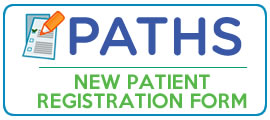What does a psychiatric aide do?
Psychiatric aides and psychiatric technicians or direct services associates help care for mentally ill and substance abuse patients. They work under the direct supervision of mental health therapists, psychiatrists, social workers, and nurses. Psychiatric technicians may specialize in certain areas, such as crisis intervention, substance abuse, or children’s problems. They may work at crisis centers, substance abuse facilities, hospitals, social service centers, schools, or community mental health programs. Their responsibilities vary according to the work setting and the individual’s level of training.
What might a psychiatric aide do in a workday?
- help patients bathe, dress, and complete other personal care activities.
- take patients to and from wards for examination and treatment.
- encourage patients to participate in social, educational, and recreational activities.
- feed patients who need assistance.
- aid or restrain patients to prevent injuries to themselves or others.
- escort patients to off-site treatment, entertainment, or enrichment activities.
- assist with patient orientation, housekeeping, and security.
Psychiatric technicians usually have more formal education, training, and responsibilities than psychiatric aides. In addition to the duties listed above, they also:
- interview patients and their families and record information.
- help develop and implement patient treatment plans.
- observe patients and report any meaningful actions to the staff.
- lead individual and group counseling sessions and therapy activities.
- teach skills that help patients resolve problems that affect daily living.
- check and record patients’ vital signs.
- assist supervisors in giving prescribed medication.
Developing a career as a psychiatric aide?
Clinical and counseling psychologists may specialize in teaching, research, therapy, counseling, rehabilitation, community health, physiology, and psychopharmacology. They may choose to concentrate their work on a specific age group or psychological problem.
- Clinical psychologists evaluate, diagnose, and treat mentally and emotionally disturbed people and are concerned with preventing and treating mental and emotional disorders.
- Educational psychologists design, develop, and evaluate techniques and materials to solve problems in education/training programs.
- School psychologists work with average, gifted, and physically or mentally challenged students.
- Psychometrists or quantitative psychologists develop and implement intelligence, aptitude, achievement, and other tests and analyze results.
- Developmental psychologists investigate emotional, mental, physical, and social growth and development.
- Social psychologists study human relationships to understand individual and group feeling, thought, and behavior.
- Experimental psychologists plan, conduct, and analyze experiments in human and animal learning, thinking, motivation, and perception.
- Industrial-organizational psychologists develop and apply psychological techniques to personnel administration, management and marketing problems.
How much does a psychiatric aide earn?
- $14,000 - $27,700
How do I become a psychiatric aide?
Students interested in becoming psychiatric aides or technicians should take challenging high school courses, including science and English. A high school diploma and postsecondary training are needed for employment as a psychiatric technician, but they are not necessary for a psychiatric aide.
Where else can I learn about becoming a psychiatric aide?
American Psychiatric Association
1000 Wilson Boulevard, Suite 1825 / Arlington, VA 22209-3901
tel: 703-907-7300 / web: http://www.psych.org
National Association of Health Care Assistants
501 E 15th St / Joplin, MO 640804
tel: 800-784-6049 / web: http://www.nahcacares.org


